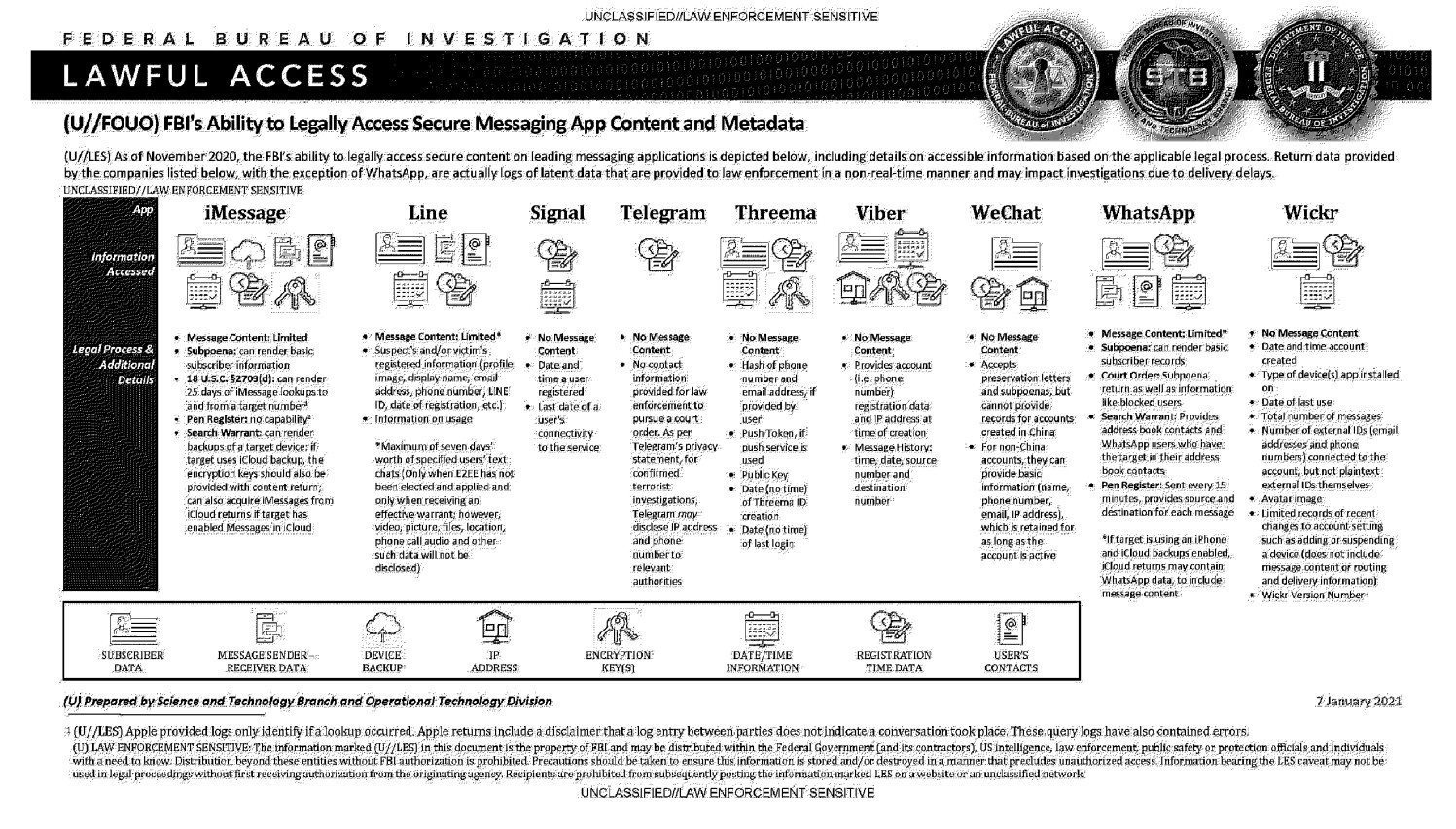
Edgar Cervantes / Android Authority
TL;DR
- An internal FBI document has revealed how much data it can legally obtain from messaging apps.
- It turns out that iMessage and WhatsApp were the most permissive in this regard.
- Signal and Telegram are two high-profile apps that don’t give out much data.
There are loads of messaging apps on the market today, and many of these services make a big deal about their security and privacy policies. Now, a newly leaked document has revealed just how much data the FBI can legally obtain from these services.
Rolling Stone and Property of the People obtained an FBI document (seen below) that details exactly what kind of information the bureau can obtain from various messaging apps with a warrant or subpoena. And it turns out that WhatsApp and iMessage provide the most information.
WhatsApp, iMessage, and Line all provide “limited” message content in response to a legal request from the FBI. Signal, Telegram, Threema, Viber, WeChat, and Wickr don’t disclose any message content though.
But the amount of data shared by WhatsApp and iMessage doesn’t stop there, and it turns out that “limited” message content isn’t as innocuous as it sounds.
The biggest snitches uncovered

Rolling Stone/Property of the People
The Facebook-owned messaging platform will only give up “basic subscriber records” with a subpoena, but a search warrant allows the FBI to grab address book contacts and WhatsApp users who have the target as a contact. A surveillance request (called a pen register here) will also allow WhatsApp to send the source and destination of messages to the FBI every 15 minutes, but not the message content itself.
Using an iPhone and got your WhatsApp messages backed up to iCloud? Then the FBI can grab actual message content too, as Apple is required to hand over the iCloud encryption key with a search warrant.
More reading: The best alternatives to WhatsApp right now
Meanwhile, iMessage only serves up “basic” subscriber information with a subpoena, but dishes out 25 days of iMessage search queries with a court order. Authorities armed with a search warrant can also make backups of a target’s device and see actual messages if the targeted person is using iCloud backups for iMessage. Apple’s service doesn’t offer a surveillance/pen register capability like WhatsApp though.
Telegram and Signal are two services with more significant limitations on what can legally be handed over to the FBI. Telegram doesn’t offer message content at all, nor does it typically provide contact information. The FBI document adds however that Telegram “may” disclose IP addresses and phone numbers to authorities for “confirmed” terrorist investigations.
Signal doesn’t provide message content either, but does offer the date and time a user registered on the service and the last date it connected to the platform.
Most of this information isn’t new, but the document does give users a better idea of how these platforms compare to each other. And this is particularly important for journalists, leakers, and their sources. Will this news make you switch messaging apps though? Let us know via the poll below.
Will you switch messaging apps after these FBI disclosures?
680 votes
Technology - Latest - Google News
December 01, 2021 at 04:36PM
https://ift.tt/3lprwYe
WhatsApp, iMessage give the most info to the FBI, new document shows - Android Authority
Technology - Latest - Google News
https://ift.tt/2AaD5dD

No comments:
Post a Comment